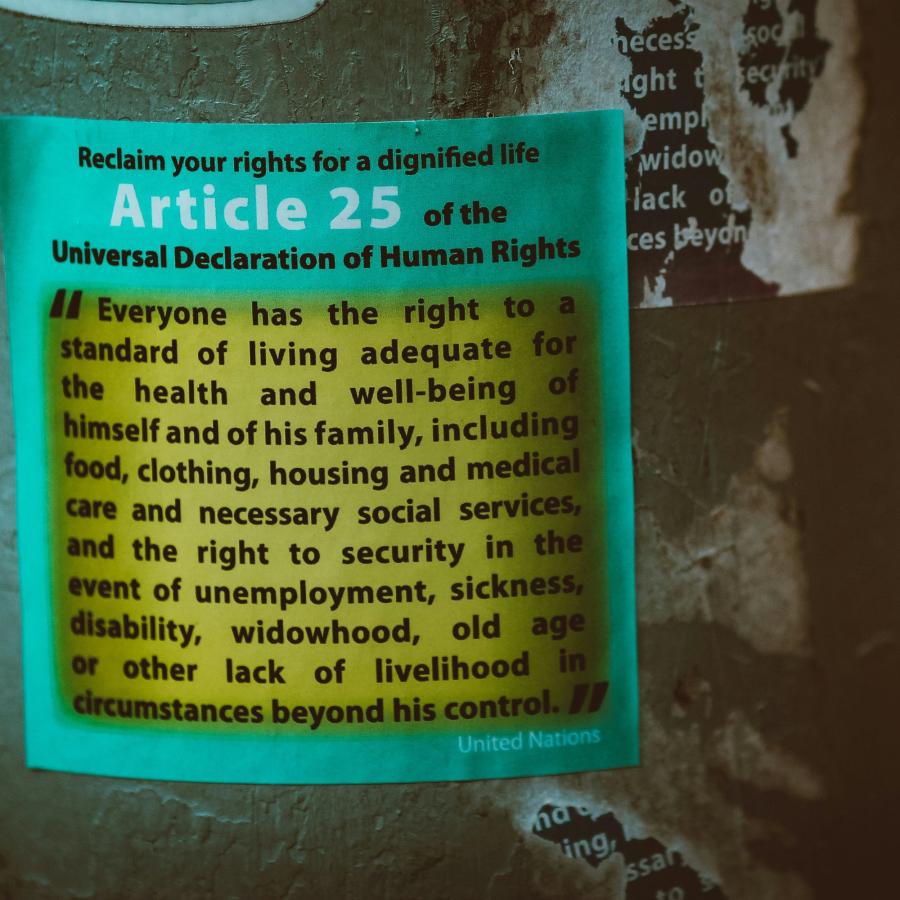The Spatial Futures Initiative is a catalyst and visionary policy hub for reparative spatial justice work in land and housing. The movement for reparative spatial justice is reimagining and reshaping spaces to enable historically marginalized communities to reclaim their connection to land and obtain restitution for the long-standing impacts of racist policies and practices. Reparative spatial justice aims not just to redistribute tangible assets like land and housing but to foster intangible yet essential elements like healing, growth, and well-being. In this expansive movement, PolicyLink is dedicated to connecting and elevating these diverse efforts.
What is Reparative Spatial Justice?
Reparative Spatial Justice is a transformative and multifaceted approach designed to address and rectify historical and ongoing injustices in the allocation, use, and accessibility of space, housing, and land. This concept centers on the reconfiguration of spaces to enable historically marginalized communities to reclaim their intrinsic connections to land and to receive restitution for enduring the impacts of racist policies and practices. By focusing on both rectifying past wrongs and shaping inclusive, equitable spatial futures, this approach emphasizes the importance of active community participation and agency in the creation and development of their own environments.
A key component of Reparative Spatial Justice involves acknowledging and dismantling the systemic structures that have perpetuated spatial inequities. This means addressing the root causes of displacement, segregation, and environmental racism, and implementing policies that promote equitable land distribution, affordable housing, and sustainable community development. It requires a commitment to ensuring that marginalized voices are not only heard but are instrumental in decision-making processes that affect their lives and spaces.
The PolicyLink Spatial Futures Initiative aligns itself with the call for reparations for Black people on land originally stewarded by Indigenous peoples. This initiative recognizes that the demand for reparations predates the emancipation of enslaved people and persists today as an unfulfilled promise. The goal is to develop systemic solutions that not only address historical grievances but also uproot the deeply entrenched inequities that continue to affect these communities across generations. By presenting broader reparative movements alongside grassroots efforts for spatial justice, Grounding Justice:Toward Reparative Spatial Futures in Land and Housing highlights the overlapping themes of restoration and repair that are constantly present in order to make lasting change. Based on these explorations, the following themes emerged as key components of the reparative process:
- Recognition or acknowledgment of harms (repairing relationships) involves openly acknowledging the historical and ongoing harms caused by spatialized racism, which is crucial in mending the fractured relationships between communities and the institutions that have perpetuated these injustices.
- Reckoning (understanding why and how) delves into a deep understanding of the causes and mechanisms of spatial injustice, unraveling the complex web of historical and systemic factors that have led to current disparities.
- Guarantees of non-repetition (accountability) entails a commitment to prevent the recurrence of past injustices, which requires systemic changes and robust accountability mechanisms.
- Restitution, redress, and repatriation (amends) involves tangible steps toward making amends, which can include financial compensation, land return, policy reforms, and other forms of redress aimed at rectifying past wrongs.
Spatial Futures Initiative Goals
The PolicyLink housing team launched the Spatial Futures Initiative to amplify initiatives that serve to uproot and amend racial inequities in land and housing policies in the United States going back for centuries. Our mission is to gather and distribute resources that catalyze communities to create initiatives that repair the past while shaping a more just present and future in land and housing.
The goals of the Spatial Futures Initiative include:
- Illuminate systemic inequities in policy architecture: Rigorously identify and analyze policies that systemically perpetuate racial disparities in land use, housing, and economic domains.
- Architect transformative policy recommendations: Develop a detailed suite of policy recommendations rooted in a “reckon, repair, and transform” framework. Advance reparative land and housing policies, framing them as the cornerstone of a broader vision where housing is seen as a human right and universal guarantee, not a privilege or commodity.
- Amplify reparative spatial justice recommendations: Accelerate wins in housing and land justice by testing and scaling groundbreaking organizing, market-influencing, financing, legal, and policy strategies.
- Build movement infrastructure: Champion the flow of resources, knowledge, and innovative research to equip communities, advocates, and policymakers with actionable and bold ideas to achieve housing and land justice. Build synergistic networks with other movement leaders to collaborate, exchange best practices, and mobilize collective action.
- Forge narrative strategies: Craft and implement powerful narratives to reframe and propel the national discourse on reparative spatial justice, thereby altering the intellectual and ethical framework that shapes land and housing access.
Spatial Futures Tools
- Grounding Justice Paper
- Grounding Justice Executive Summary in Spanish and English
- Spatial Futures Fellows
- Spatial Futures Database


